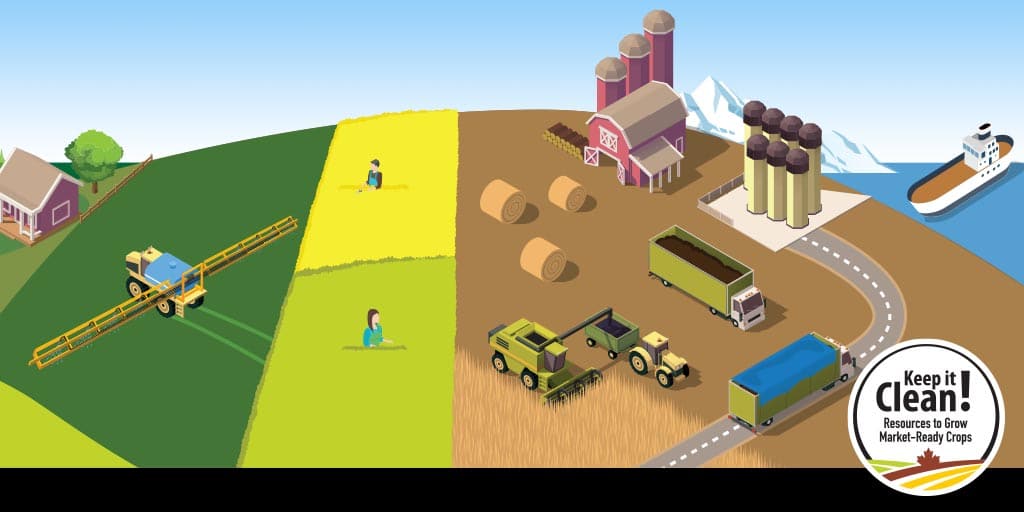The Keep it Clean program connects all levels of crop production from life sciences companies to exporters in order to keep Canadian crops up to customer standards.
The majority of the crops Canadian farmers grow are exported internationally to markets which may have different standards than Canada does. To keep these standards all straight Canadian commodity groups have gathered together for the Keep it Clean program.
“The key part about Keep it Clean is connecting the value chain. Everyone has a role to play in delivering high quality canola to our customers,” Brian Innes, vice-president of public affairs for the Canola Council of Canada (CCC), says in a phone interview.
Keep it Clean was originally started by the canola industry about 15 years ago. Around 90 per cent of Canadian canola is exported and while biotech traits may have once been sold in Canada, it doesn’t mean they are still approved in export markets.
“Our calling card is that we are resilient, adaptable and reliable supplier of canola,” Innes says. “When countries purchase our canola, they know what they’re going to get, and they can have confidence that it will continue to meet their requirements.”
When it comes to canola seed, Keep it Clean is important as it instructs farmers to only grow registered varieties and ones which are disease resistant, specifically to blackleg. The Canadian seed industry ensures registered varieties only contain biotech traits which are approved in export markets, Innes notes. The program also highlights the importance of crop rotations in disease prevention.
“When it comes to the Canadian canola quality system, we’re unique in the world in that we know the quality characteristics of the canola we produce because in order for seed to be sold in Canada it needs to be registered,” Innes explains. “When varieties are registered that means that they meet characteristics that are desirable for our customers.”
Overall the program is meant to bring all levels of the supply chain together in order to make sure everyone understands what Canada’s domestic and export customers need and want.
“The essence is that we’re all in this together. What each player in the value chain does affects our ability to meet export customers’ requirements,” Innes says. “The more we all do our part, the better value and less risk we have for our canola sector.”
Recently Pulse Canada, Cereals Canada, the Barley Council of Canada and the Prairie Oat Growers Association joined CCC to expand the program to cover more Canadian crops. Over 80 million tonnes of wheat, oats and barley are exported every year, while 85 per cent of Canada’s pulse crops are exported.
The other parts of Keep it Clean focus on using only accepted pesticides on crops, always reading and following the labels of products you use on your crops and storing your crop properly to keep it free of contaminants.





